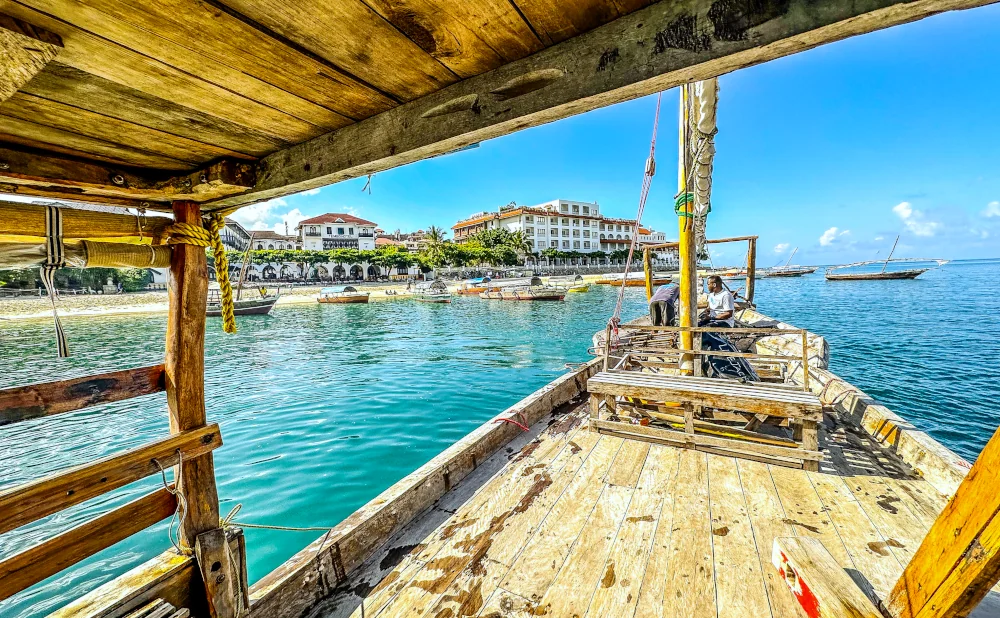Cultural Tour visit the maasai and Hadzabe Community
Immersing oneself in a new culture is a transformative experience. It broadens our perspectives and enriches our understanding of the world.
In the heart of Tanzania, two unique communities offer such an opportunity. The Maasai and Hadzabe tribes, each with their distinct customs and lifestyles, welcome visitors for a cultural tour.
The Maasai, known for their vibrant attire and pastoralist lifestyle, offer a glimpse into a culture deeply rooted in tradition. On the other hand, the Hadzabe, one of the last hunter-gatherer tribes in Africa, provide a rare insight into a way of life that has endured for thousands of years.
This guide aims to prepare you for a respectful and enriching visit to these communities. It will provide an overview of what to expect, how to engage responsibly, and the significance of these cultural tours.
Whether you're an adventure traveler, a cultural enthusiast, or simply curious, this journey promises to be an unforgettable one.
Understanding the Maasai and Hadzabe Cultures
Before embarking on your cultural tour, it's essential to understand the unique heritage of the Maasai and Hadzabe tribes. Both communities have a rich history and a deep connection to the land they inhabit.
The Maasai, a semi-nomadic tribe, are known for their distinctive customs and dress. Their culture is deeply intertwined with their livestock, which plays a central role in their economy and social structure.
The Hadzabe, on the other hand, are one of the last hunter-gatherer tribes in Africa. Their survival skills and intimate knowledge of the land are a testament to their resilience and adaptability.
Understanding these cultures is not only fascinating but also crucial for a respectful and meaningful visit.
The Maasai: A Pastoralist Heritage
The Maasai people have a rich pastoralist heritage. Their lives revolve around their livestock, which is a source of food, wealth, and social status.
Their traditional dwellings, known as "Manyattas," are built by women and designed to be easily dismantled and moved. This reflects their semi-nomadic lifestyle, which is dictated by the needs of their livestock.
The Maasai's vibrant beadwork is another distinctive aspect of their culture, with each color and pattern carrying a specific meaning.
The Hadzabe: Hunter-Gatherers of Tanzania
The Hadzabe tribe, on the other hand, leads a very different lifestyle. As one of the last hunter-gatherer tribes in Africa, they rely on the land for their survival.
They are exceptional trackers, with a deep understanding of wildlife behavior and the natural environment. Their hunting tools, such as the bow and arrow, are crafted with precision and skill.
The Hadzabe's symbiotic relationship with the baobab tree, which provides food, water, and shelter, is a testament to their resourcefulness and adaptability.
Preparing for Your Cultural Tour
A cultural tour to the Maasai and Hadzabe communities is a unique and enriching experience. However, it requires careful preparation to ensure a respectful and meaningful visit.
Firstly, it's important to learn about the customs and traditions of these communities. This includes understanding their social structures, religious beliefs, and daily routines.
Secondly, you should familiarize yourself with the local languages, Maa and Hadzane. Even learning a few basic phrases can greatly enhance your interaction with the community members.
Lastly, you should pack appropriately for the tour. This includes:
- Comfortable clothing suitable for the local climate
- Gifts for the community, such as school supplies or medical supplies
- A reusable water bottle to minimize plastic waste
What to Expect on the Tour
A cultural tour to the Maasai and Hadzabe communities is a journey into a different way of life. You'll have the opportunity to participate in daily activities, such as herding livestock or gathering food.
You may also witness traditional ceremonies and rites of passage, which are integral to these cultures. These experiences provide a deeper understanding of the Maasai and Hadzabe's unique heritage and lifestyle.
Remember, each tour is different and depends on the time of year, the specific community you visit, and the activities they choose to share.
Engaging Responsibly with the Communities
Engaging responsibly with the Maasai and Hadzabe communities is crucial. This means respecting their customs, traditions, and personal boundaries.
Always ask for permission before taking photographs or entering private spaces. Remember, you are a guest in their community and it's important to behave accordingly.
Lastly, consider how your visit can contribute positively to the community. This could be through purchasing local crafts, supporting community projects, or simply by learning and sharing their stories with others.
Experiencing the Maasai and Hadzabe Way of Life
Immersing yourself in the Maasai and Hadzabe way of life is a transformative experience. You'll gain a deeper appreciation for their resilience, wisdom, and connection to the land.
You'll also witness the challenges these communities face in preserving their traditions amidst modernization and climate change. This firsthand experience can inspire a greater commitment to cultural preservation and responsible tourism.
""
Participating in Daily Activities
Participating in daily activities is a highlight of the cultural tour. With the Maasai, you might learn how to herd cattle, an essential skill in their pastoralist lifestyle.
With the Hadzabe, you could join a hunting excursion or learn about their knowledge of medicinal plants. These activities provide a glimpse into their survival skills and deep connection to the environment.
Remember, participation is voluntary and should be done with respect for the community's customs and comfort levels.
Cultural Practices and Ceremonies
Cultural practices and ceremonies are integral to the Maasai and Hadzabe cultures. You might witness a Maasai warrior's jumping dance, known as "Adumu," or a Hadzabe storytelling session around the fire.
These experiences provide insight into their social structures, moral values, and spiritual beliefs. They also highlight the importance of music, dance, and oral traditions in these cultures.
However, it's crucial to remember that these are not performances for tourists, but sacred practices. Always observe with respect and follow the guidance of your local guide.
The Role of Tourism in Cultural Preservation
Tourism plays a significant role in cultural preservation. It provides a platform for the Maasai and Hadzabe to share their cultures with the world.
Through cultural tours, these communities can generate income while preserving their traditions. This income often supports education, healthcare, and other community initiatives.
However, it's a delicate balance. Tourism must be managed responsibly to avoid exploitation and cultural erosion.
Supporting Local Economies and Traditions
When you participate in a Maasai and Hadzabe community tour, you're directly supporting local economies. Your visit can contribute to job creation and income generation.
You're also supporting the preservation of traditions. By purchasing locally made crafts, you're helping to keep traditional skills alive.
Remember, your contributions should be direct and fair. Avoid giving handouts, which can create dependency and undermine local economies.
Choosing a Responsible Tour Operator
Choosing a responsible tour operator is crucial. They should prioritize the well-being of the communities and the environment.
Look for operators who work closely with the Maasai and Hadzabe, ensuring that the benefits of tourism are shared equitably.
Also, consider operators who support conservation efforts. This helps protect the lands and cultures of these communities for future generations.
The Impact of Your Visit
A visit to the Maasai and Hadzabe communities is more than just a tour. It's an opportunity to learn, connect, and contribute to the preservation of unique cultures.
Your visit can have a lasting impact. By engaging respectfully and responsibly, you can help support these communities and their traditions.
In return, you'll gain unforgettable memories and a deeper understanding of the world's cultural diversity. A Maasai and Hadzabe community tour is truly a transformative experience.











